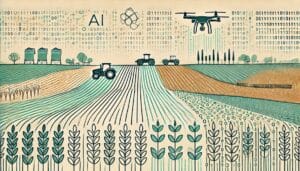In the ever-evolving landscape of artificial intelligence (AI), the availability of robust tools and frameworks has played a pivotal role in accelerating the development and deployment of AI solutions. These tools have not only simplified the complex process of building AI models but have also fostered a thriving AI community of researchers and developers. In this article, we’ll explore some of the leading AI tools and frameworks, their significance, and their role in shaping the future of AI innovation.
AI Tools: The Backbone of Innovation
AI tools and frameworks are software libraries and platforms designed to simplify the development and deployment of AI models and applications. They provide a foundation for various AI tasks, from natural language processing to computer vision and reinforcement learning. Two of the most prominent AI tools and frameworks are TensorFlow and PyTorch.
TensorFlow: Google’s Powerhouse
TensorFlow, developed by Google, is one of the most widely adopted AI frameworks globally. It offers a versatile and comprehensive ecosystem for building and deploying machine learning and deep learning models. Key features and strengths of TensorFlow include:
Flexibility: TensorFlow supports a wide range of model architectures, making it suitable for tasks ranging from image classification to speech recognition.
Scalability: It seamlessly scales from a single device to large distributed systems, enabling the training of complex models on vast datasets.
Community and Resources: TensorFlow boasts a vast and active user community, making it easy to find tutorials, documentation, and pre-trained models.
Production Deployment: TensorFlow Serving allows for efficient deployment of models in production environments.
TensorFlow.js: This library extends TensorFlow to the web and allows developers to build AI-powered web applications.
PyTorch: The Researcher’s Choice
PyTorch, developed by Facebook’s AI Research lab (FAIR), has gained popularity, especially among researchers and academics. It is known for its dynamic computation graph, which offers greater flexibility and ease of use compared to static graph frameworks like TensorFlow. Key strengths of PyTorch include:
Dynamic Computation Graph: PyTorch’s dynamic approach to defining graphs makes it more intuitive for researchers experimenting with new ideas.
Pythonic Syntax: Its Pythonic syntax is easy to learn and use, making it an excellent choice for those new to deep learning.
Community and Research: PyTorch has a growing community and is favored by many researchers for its simplicity and versatility.
Libraries and Tools: It offers a range of high-level libraries and tools, such as torchvision and torchaudio, for various AI tasks.
Deployment Options: PyTorch provides several options for deploying models, including the PyTorch Mobile and TorchScript.
The Future of AI Tools and Frameworks
The AI landscape is continually evolving, and the future of AI tools and frameworks looks promising. Here are some key trends and developments to watch for:
Hardware Integration: Tools will continue to adapt and optimise for emerging hardware accelerators like GPUs and TPUs.
Model Efficiency: Frameworks will focus on making models more efficient and environmentally friendly.
Interoperability: Expect greater interoperability between different AI frameworks, allowing for seamless integration.
AutoML: Automation tools within frameworks will enable users to build and fine-tune models more easily.
Edge Computing: As AI moves to the edge, tools will support efficient deployment on resource-constrained devices.
Conclusion
AI tools and frameworks are the bedrock of AI innovation, empowering researchers and developers to push the boundaries of what’s possible in the field of artificial intelligence. Whether you choose TensorFlow, PyTorch, or another framework, these tools are the essential building blocks that will shape the future of AI and bring about exciting advancements in technology, science, and industry.
Stay updated with the latest AI news. Subscribe now for free email updates. We respect your privacy, do not spam, and comply with GDPR.



